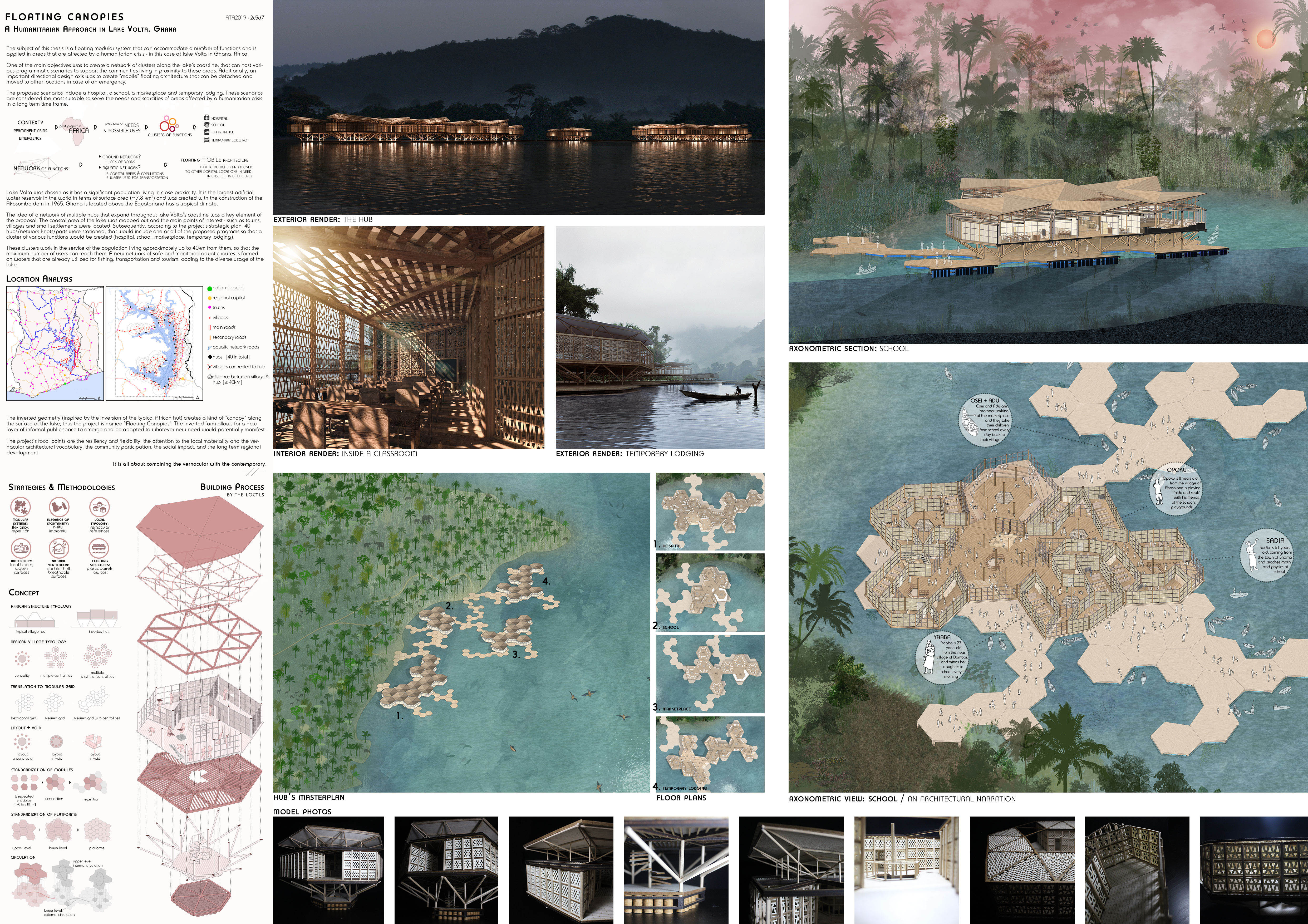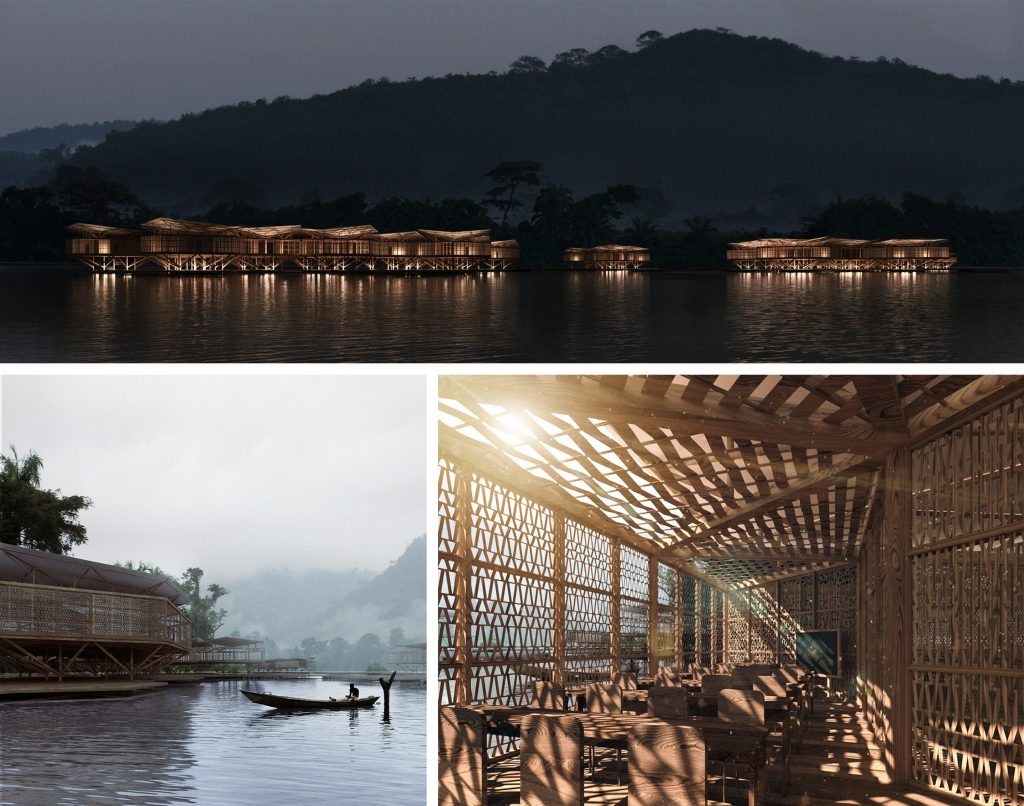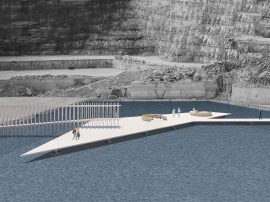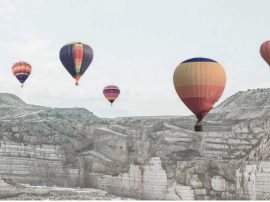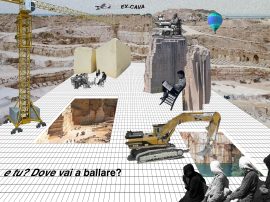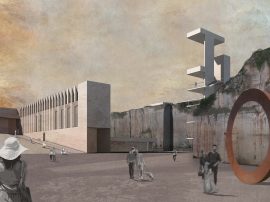The subject of this thesis is a floating modular system that can accommodate a number of functions and is applied in areas that are affected by a humanitarian crisis – in this case at lake Volta in Ghana, Africa.
One of the main objectives was to create a network of clusters along the lake’s coastline, that can host various programmatic scenarios to support the communities living in proximity to these areas. Additionally, an important directional design axis was to create “mobile” floating architecture that can be detached and moved to other locations in case of an emergency.
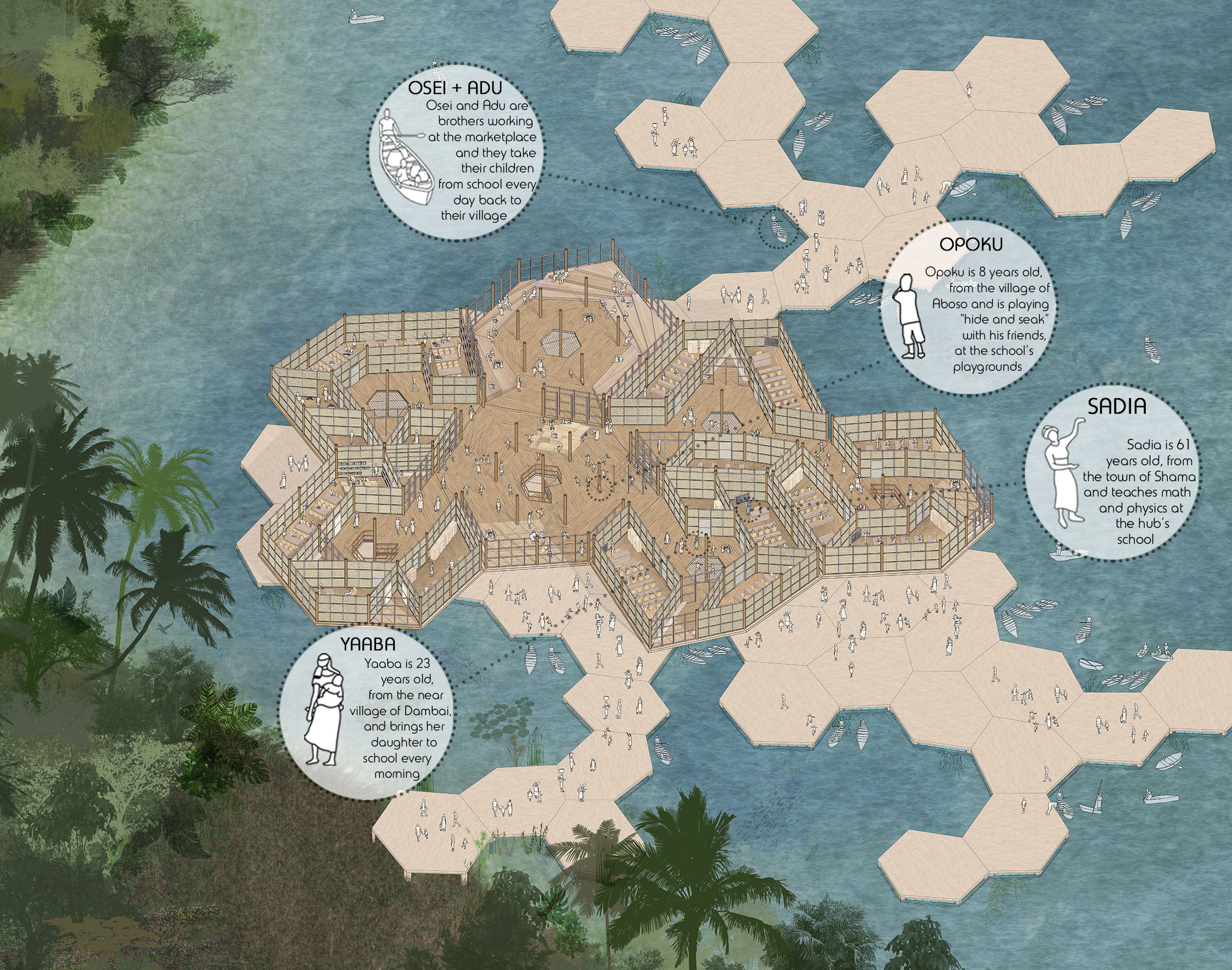
The proposed scenarios include a hospital, a school, a marketplace and temporary lodging. These scenarios are considered the most suitable to serve the needs and scarcities of areas affected bake Volta was chosen as it has a significant population living in close proximity. It is the largest artificial water reservoir in the world in terms of surface area (~7.8 km2) and was created with the construction of the Akosombo dam in 1965. Ghana is located above the Equator and has a tropical climate. The idea of a network of multiple hubs that expand throughout lake Volta’s coastline was a key element of the proposal. The coastal area of the lake was mapped out and the main points of interest - such as towns, villages and small settlements were located. Subsequently, according to the project’s strategic plan, 40 hubs/network knots/ports were stationed, that would include one or all of the proposed programs so that a cluster of various functions would be created (hospital, school, marketplace, temporary lodging). These clusters work in the service of the population living approximately up to 40km from them, so that the maximum number of users can reach them. A new network of safe and monitored aquatic routes is formed on waters that are already utilized for fishing, transportation and tourism, adding to the diverse usage of the lakey a humanitarian crisis in a long term time frame.
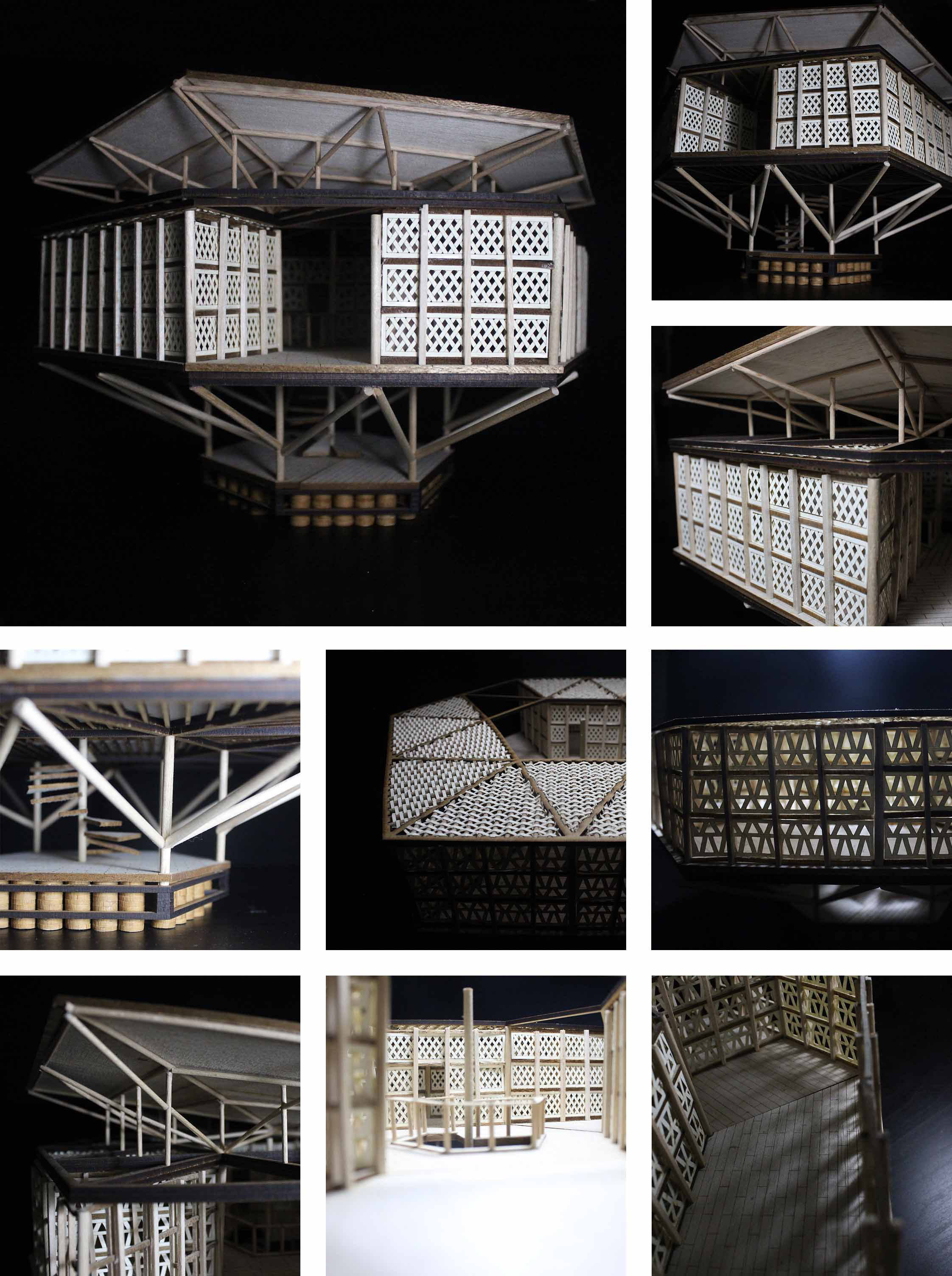
The inverted geometry (inspired by the inversion of the typical African hut) creates a kind of “canopy” along the surface of the lake, thus the project is named “Floating Canopies”. The inverted form allows for a new layer of informal public space to emerge and be adapted to any kind of new need that could potentially manifest in the future. The project’s focal points are the resiliency and flexibility, the attention to the local materiality and the vernacular architectural vocabulary, the community participation, the social impact, and the long term regional development. It is all about combining the vernacular with the contemporary.
The Board:
